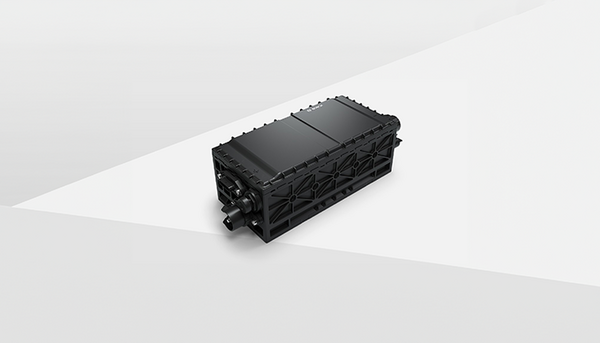48-volt batteries can reduce short-to-medium-term carbon emissions by up to 15%. With their batteries, Bosch offers vehicle manufacturers a powerful and clever solution. DELO developed an adhesive especially for Bosch—a long-standing and close partner—playing a significant role in its performance.
As automakers work toward an emissions-free future, 48-volt mild-hybrid systems play an important role, with batteries being their core element. By supplementing power to the internal combustion engine, they help reduce fuel consumption, thus carbon emissions as well. As a cost-efficient introduction to electrification, they benefit both manufacturers and consumers.
The main function of the 48-volt battery is to store regenerated braking energy and supply it to the vehicle as a boost when accelerating. It also enables various electric driving functions, such as coasting, traffic jam assistance, or automated parking assistance. This energy can also be used for electrical features within the vehicle. Automakers can therefore reduce their carbon emissions by up to 15% at very low cost.
A particularly powerful solution from Bosch
Such mild-hybrid systems, then, have an exceptional cost-benefit ratio. Bosch expects 20 percent of all cars and light commercial vehicles sold to be powered by mild-hybrid powertrains by 2025.
Bosch is the technology leader in its field. Its 48-volt batteries can already be found in many vehicles around the world. These systems are so compact, they allow automakers maximum flexibility during installation. The Bosch battery measures just 140 millimeters in height. This means it can be placed in discreet places such as the trunk or under the passenger seat. The key to its compact structure lies in its thermal design.
Highlight: Robust cells and a clever cooling function
To this end, Bosch and its partners have developed lithium-ion cells that enable a special cooling function, providing decisive advantages. Due to their high power density, conventional lithium-ion energy storage systems heat up considerably. As soon as temperatures exceed 55–60 °C, power must be partially cut off to protect them. Bosch battery cells, however, are more robust. They even work at temperatures of up to 75 °C. This increased heat resistance enables a simpler cooling function.
A DELO adhesive that clings and cools
A special adhesive, which DELO developed for Bosch—a close partner of many years—after extensive joint testing, also plays an important role in cell performance.
Among other things, this special product is fire-resistant in accordance with the industry standard UL 94 V-0, designed for battery's entire temperature range, offering high strength on battery cells and typical housing materials as demonstrated by a tensile shear strength of 18 N/mm² on aluminum. It has also been optimized for manufacturing processes; easy to detect through cameras, it allows Bosch to carry out precise application control and, thus, high quality assurance.
However, the adhesive’s most important property is a thermal conductivity of 1.0 W/(m·K). This allows battery cells to be bonded into the battery housing, and for heat generated during operation to be efficiently dissipated. As a result, it combines structural bonding and thermal management system mounting in one step instead of having to manually fix battery cells and then use gap fillers for heat dissipation. Saving one process step, this adhesive simplifies production.
Therefore, DELO adhesives make a small, but important contribution to Bosch's powerful, cost-efficient mild-hybrid solution, reducing carbon emissions worldwide in the process.







